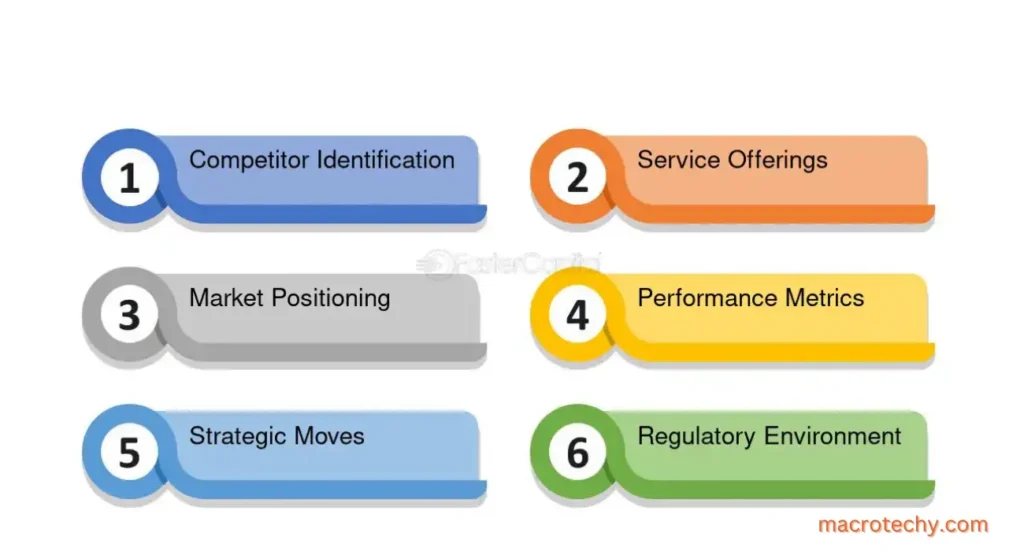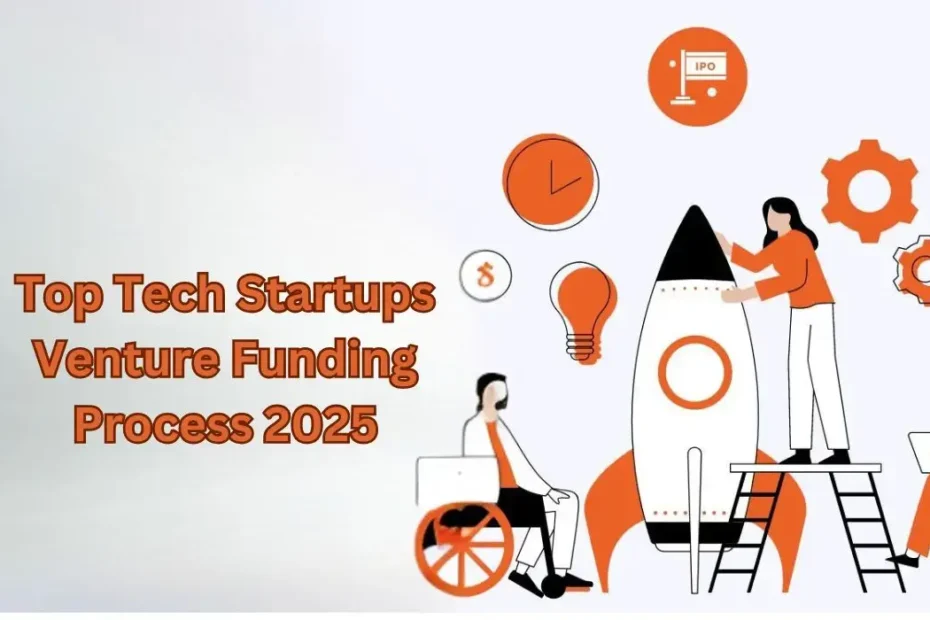The technology startup ecosystem continues to evolve at an unprecedented pace, reshaping industries and creating new paradigms for innovation and business growth. As we progress through 2025, the convergence of artificial intelligence, sustainable technologies, and digital health solutions has created fertile ground for entrepreneurial ventures that address pressing global challenges while capitalizing on emerging market opportunities.
The importance of startups in driving technological innovation cannot be overstated. These agile organizations serve as catalysts for change, challenging established industry norms and introducing solutions that larger corporations might be too risk-averse to pursue. From pioneering artificial intelligence applications that transform business operations to developing breakthrough renewable energy technologies that address climate change, startups are at the forefront of technological advancement.
This comprehensive analysis serves multiple purposes. First, it identifies and examines the most promising technology top tech startups 2025, providing insights into their innovative solutions and market potential. Second, it offers a detailed exploration of the venture funding process, helping entrepreneurs and interested observers understand what investors seek in potential investments. Finally, it provides actionable guidance for startup founders navigating the complex landscape of venture capital and business development.

Notable Tech Startups to Watch in 2025
Emerging Sectors of Interest
The technology landscape of 2025 is characterized by several rapidly expanding sectors that are attracting significant investor attention and entrepreneurial talent. In artificial intelligence and machine learning, we’re seeing a shift from general-purpose AI tools to highly specialized applications that address specific industry challenges. Companies are developing sophisticated AI solutions that focus on enterprise decision-making, predictive maintenance, and automated customer service systems that significantly outperform their predecessors.

The renewable energy technology sector has gained tremendous momentum, driven by global sustainability initiatives and increasing corporate commitment to carbon neutrality. Innovative startups are developing advanced energy storage solutions, smart grid technologies, and novel approaches to solar and wind power generation that promise to make renewable energy more efficient and accessible.

Health technology has emerged as a particularly dynamic sector, accelerated by recent global health challenges. Telehealth platforms have evolved beyond basic video consultations to incorporate AI-driven diagnostics, remote patient monitoring systems, and personalized medicine solutions that leverage genetic data and machine learning algorithms.
Case Studies of Promising Startups
NeuraTech stands out among AI-focused startups, having developed a groundbreaking natural language processing system that can understand and generate context-aware responses in over 100 languages. Several Fortune 500 companies have already adopted their technology for customer service applications, demonstrating the market’s appetite for sophisticated AI solutions.
SolarGrid Dynamics has garnered attention in the renewable energy sector for its innovative approach to solar energy storage. Their proprietary technology combines advanced battery chemistry with AI-driven power management systems, achieving a 40% improvement in energy storage efficiency compared to traditional solutions.
Healthbridge represents the evolution of telehealth platforms, offering an integrated solution that combines remote patient monitoring with predictive health analytics. Their platform has shown remarkable success in reducing hospital readmission rates and improving patient outcomes, particularly in chronic disease management.
he Role of Location in Startup Success
While Silicon Valley maintains its position as a leading technology hub, the startup ecosystem has become increasingly decentralized. Emerging technology centers in cities like Austin, Miami, and Raleigh-Durham are attracting talented entrepreneurs with lower operating costs and supportive local policies. These regions are developing their specialized technology clusters, with Austin emerging as a clean technology hub and Miami establishing itself as a center for financial technology innovation.

Globally, cities like Singapore, Tel Aviv, and Berlin have strengthened their positions as technology hubs, each developing distinct specializations. Singapore has become a leader in financial technology and AI applications, while Tel Aviv continues to excel in cybersecurity and digital health innovations.
The widespread adoption of remote work has fundamentally altered the geography of startup success. Companies are increasingly building distributed teams, accessing talent pools across multiple time zones, and reducing their dependence on physical location. This shift has enabled startups to optimize their operations by maintaining smaller physical footprints while leveraging global talent.
Understanding the Venture Funding Process
Stages of Venture Capital Funding
The venture capital funding journey typically begins with seed stage funding, where early-stage startups secure initial capital to validate their business concept and develop minimum viable products. At this stage, investments typically range from $500,000 to $2 million, with investors accepting higher risks in exchange for larger equity stakes.
Series A funding marks a crucial transition, focusing on companies that have demonstrated product-market fit and established revenue streams. These rounds commonly range from $2 million to $15 million, enabling startups to scale their operations and expand their market presence. Series B and C rounds follow as companies mature, with funding amounts increasing substantially to support rapid growth, market expansion, and potential acquisitions.
Exit strategies represent the culmination of the venture funding cycle. Common paths include initial public offerings (IPOs), strategic acquisitions by larger companies, or mergers with other entities. The choice of exit strategy significantly influences a startup’s growth trajectory and investor returns.

Key Players in Venture Capital
Venture capital firms serve as the primary institutional investors in the startup ecosystem. These firms manage investment funds on behalf of limited partners, typically focusing on specific sectors or stages of company development. Leading firms often provide not just capital, but also strategic guidance, industry connections, and operational expertise.
Angel investors play a vital role in early-stage funding, bridging the gap between founder capital and institutional investment. These individuals, often successful entrepreneurs themselves, provide not only financial support but also valuable mentorship and industry connections. The angel investment landscape has evolved to include organized angel groups and syndicates that pool resources and expertise.
Crowdfunding platforms have emerged as an alternative funding source, democratizing startup investment. Platforms like Republic and StartEngine enable retail investors to participate in startup funding while providing companies with additional publicity and market validation. However, this approach requires careful consideration of regulatory compliance and investor relations management.
Common Terminology in Venture Funding
Understanding equity and valuation fundamentals is crucial for both entrepreneurs and investors. Pre-money and post-money valuations determine ownership percentages, while preferred stock terms protect investor interests. Modern valuation methods increasingly consider both traditional metrics and technology-specific factors such as user growth and engagement.
Convertible notes have become popular instruments for early-stage funding, offering flexibility in timing valuation decisions. These debt instruments convert to equity at future funding rounds, typically including provisions like valuation caps and discount rates to reward early investors for their higher risk.
Term sheets outline the key economic and control terms of an investment, serving as the foundation for detailed legal documentation. Critical elements include investment amount, valuation, investor rights, board composition, and liquidation preferences. Modern term sheets increasingly address contemporary issues such as data rights and sustainability commitments.
What Investors Look For in Startups
Evaluation of the Business Model
Venture capitalists prioritize business models that demonstrate clear scalability and sustainability when evaluating potential investments. Successful startups typically show the ability to grow revenue significantly while maintaining relatively stable operational costs. This scalability often stems from technological advantages, network effects, or innovative distribution channels that create meaningful barriers to entry.
Revenue streams receive particular scrutiny, with investors favoring companies that demonstrate multiple, recurring revenue sources. The subscription-based model has gained prominence across various technology sectors, providing predictable income and strong customer retention metrics. Investors also evaluate the potential for expanding revenue through adjacent market opportunities and international expansion.
Market analysis plays a crucial role in investment decisions. Investors seek startups addressing sizeable market opportunities, typically targeting total addressable markets exceeding $1 billion. The competitive analysis must demonstrate clear differentiation and sustainable advantages over both existing players and potential new entrants. Successful startups often identify underserved market segments or create entirely new categories within existing markets.

Assessing the Founding Team
The founding team’s experience and background significantly influence investment decisions. Investors look for founders who combine domain expertise with entrepreneurial instincts. Prior startup experience, particularly in relevant industries, is highly valued. However, investors also recognize that transformative innovations often come from founders who bring fresh perspectives to industry challenges.
Team dynamics and complementary skill sets have become increasingly important evaluation criteria. Modern startups require diverse capabilities spanning technology, operations, and business development. Investors assess how well-founding teams collaborate, make decisions, and adapt to changing market conditions. The ability to attract and retain top talent also serves as a key indicator of leadership capability.
A compelling vision coupled with strong execution abilities remains essential. Investors evaluate founders’ capacity to articulate a clear strategic direction while demonstrating pragmatic approaches to achieving milestones. The ability to inspire both employees and customers while maintaining operational discipline distinguishes successful founding teams.
Financial Considerations
Financial projections must balance ambition with credibility. Investors expect detailed financial models that demonstrate an understanding of key business drivers and unit economics. Successful startups typically present conservative near-term projections while outlining ambitious but achievable long-term growth trajectories. Key metrics such as customer acquisition costs, lifetime value, and gross margins receive particular attention.
Capital utilization plans must align with strategic priorities. Investors evaluate how effectively startups deploy capital across product development, market expansion, and team building. Clear milestone-based planning helps investors understand how their capital will drive company growth and create value. Efficient cash management and runway planning demonstrate financial discipline.
Risk assessment encompasses both company-specific and market-related factors. Investors analyze technical risks, market risks, and execution risks while evaluating mitigation strategies. Strong startups maintain contingency plans for various scenarios and demonstrate adaptability in their strategic planning. The ability to identify and address potential risks proactively strengthens investor confidence.
The Future of Tech Startups and Venture Investment
Predictions for Startup Growth Over the Next Decade
The technology startup landscape continues to evolve rapidly, shaped by emerging technologies and changing market demands. Artificial intelligence and machine learning are moving beyond traditional applications into specialized domains such as environmental modeling, drug discovery, and quantum computing. This evolution creates opportunities for startups to develop highly focused solutions that address complex industry challenges.
Investment preferences are shifting toward sustainable and impact-driven technologies. Venture capital firms increasingly incorporate environmental, social, and governance (ESG) criteria into their investment frameworks. This trend favors startups developing solutions for climate change, resource efficiency, and social impact while maintaining strong business fundamentals.
Consumer behavior and preferences continue to drive innovation in unexpected directions. The convergence of virtual and physical experiences is creating new markets for startups in areas such as augmented reality, digital wellness, and personalized services. These evolving consumer needs present opportunities for startups that can effectively combine technological innovation with human-centered design.

Challenges Facing Tech Startups
Market saturation presents a significant challenge, particularly in established technology sectors. Startups must navigate increasingly crowded markets where established players have significant resources and market presence. Success requires either identifying truly underserved niches or developing breakthrough technologies that create entirely new market categories.
Regulatory frameworks are becoming more complex, especially in areas such as artificial intelligence, data privacy, and financial technology. Startups must balance innovation with compliance, often requiring significant resources to navigate regulatory requirements across different jurisdictions. Forward-thinking startups are incorporating regulatory considerations into their early product development and business planning.
The talent competition has intensified across all technology sectors. Startups face challenges in attracting and retaining skilled professionals, particularly in specialized fields such as machine learning, cybersecurity, and data science. Successful companies are developing innovative approaches to talent acquisition, including distributed teams, equity compensation, and partnerships with educational institutions.
Tips for Entrepreneurs Seeking Investment
Creating a compelling pitch requires more than just presenting a good idea. Successful entrepreneurs develop comprehensive narratives that connect their technology solutions to clear market opportunities and demonstrate realistic paths to profitability. Their pitches combine data-driven analysis with engaging storytelling, addressing both the rational and emotional aspects of investment decisions.
Building strong investor relationships starts well before the formal fundraising process. Successful entrepreneurs cultivate networks within their industry, participate in startup ecosystems, and engage with potential investors through multiple channels. Regular updates and transparent communication help build credibility and trust with the investment community.
Preparation for due diligence has become increasingly rigorous. Smart entrepreneurs maintain detailed documentation of their technology, market research, financial projections, and legal compliance. They anticipate investor questions and prepare comprehensive responses, demonstrating both thoroughness and transparency in their business practices.
Conclusion
The intersection of technology startups and venture capital continues to drive innovation and economic growth in unprecedented ways. As we progress through 2025, the startup ecosystem demonstrates remarkable resilience and adaptability, with entrepreneurs leveraging emerging technologies to address global challenges and create sustainable business opportunities.
The success of technology startups increasingly depends on their ability to combine innovative solutions with solid business fundamentals. While groundbreaking technology remains important, investors are placing greater emphasis on sustainable business models, strong unit economics, and clear paths to profitability. This evolution reflects a maturing startup ecosystem where value creation must align with responsible growth and measurable impact.
The relationship between startups and investors continues to evolve beyond traditional funding dynamics. Modern venture capital partnerships often involve strategic collaboration, knowledge sharing, and ecosystem development. This collaborative approach strengthens the foundation for sustainable growth and increases the probability of successful outcomes for both entrepreneurs and investors.
Frequently Asked Questions (FAQs)
What constitutes a successful startup?
A successful startup demonstrates several key characteristics beyond mere financial performance. These include a scalable business model with strong unit economics, sustained customer growth and retention, and the ability to adapt to changing market conditions. Success also encompasses building a strong organizational culture, developing intellectual property assets, and creating lasting value for stakeholders. While definitions of success may vary, the ability to achieve sustainable growth while maintaining operational efficiency remains fundamental.
How can I attract investors for my tech startup?
Attracting investors requires a comprehensive approach that begins well before the actual fundraising process. Start by developing a clear value proposition and demonstrating market validation through early customer adoption or partnerships. Build relationships within the startup ecosystem, including accelerators, industry events, and professional networks. Prepare thorough business plan documentation, financial projections, and market analysis. Most importantly, demonstrate traction through measurable metrics and clear milestone achievement.
What should I include in my business plan for potential investors?
A comprehensive business plan should include a detailed analysis of your market opportunity, competitive landscape, and go-to-market strategy. Focus on clear financial projections supported by realistic assumptions and key performance indicators. Include information about your team’s capabilities, experience, intellectual property strategy, and risk mitigation plans. Address potential challenges and outline specific uses of capital tied to business milestones. Remember that the business plan should evolve as your company grows and market conditions change.
Through careful consideration of these elements and diligent preparation, entrepreneurs can position their startups for success in the competitive technology landscape while building meaningful relationships with potential investors. The future belongs to those who can effectively combine innovation with execution, creating sustainable businesses that deliver value to customers and stakeholders alike.
